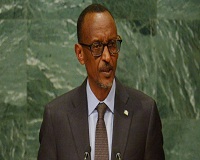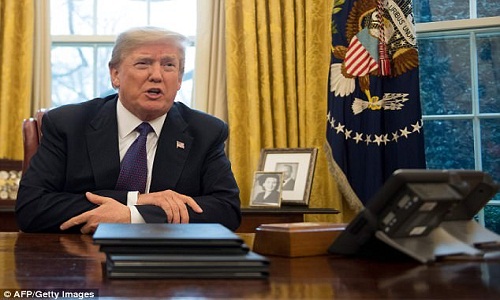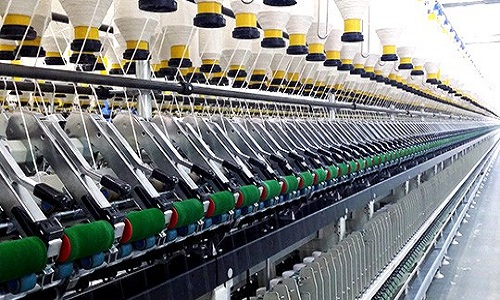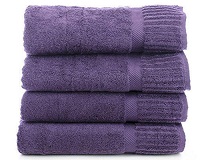FW
Hosiery manufacturers in India want the government to stop any further export of cotton till the next cotton season begins in October. They feel, this will control cotton prices and make the remaining quantity of harvested cotton crop available to domestic textile sector.
With cotton being the main raw material for knitwear manufacturers, any escalation in prices affects profit margins. Huge fluctuations in domestic cotton prices in recent months have resulted in an increase in cotton yarn prices. Hosiery includes socks, tights and pantyhose and nylons. The growth of socks segment is mainly driven by increasing demand for socks from the age group up to 14 years and the age group 15 to 64.
Consumers look for quality, durability, fit, style, and glamor while purchasing hosiery products. Not only is the market for women’s hosiery rising, the demand for such goods is rising from the men's segment too because these days even men follow new trends in fashion and apparels.
The e-commerce sector is a major driver propelling the growth of the hosiery market. Online retail stores save the consumer's time, give product availability at doorsteps, and offer products at discounted prices. Penetration of sheer hosiery has been lower in India, primarily due to the huge presence of unbranded sheer hosiery in the large unorganised marketplaces in the country.
H&M Q2 sales rose two per cent compared corresponding quarter of previous year. The total number of stores in H&M group was 4,801 as of May 31, 2018, compared to 4,498 in the same time previous year. Sweden-based H&M was founded in 1947. The business idea is to offer fashion and quality at the best price in a sustainable way. The group has 47 online markets and more than 4,800 stores in 69 markets including franchise markets. The number of employees amounts to more than 1,71,000.
H&M aims at using only recycled or sustainable materials by 2030. It launched a pilot project called Take Care in Germany. The project features in-store seamstresses, sales of garment care products and online advice. Take Care aims at encouraging H&M customers to extend the life of their clothes, giving them the means to take better care of their garments.
On products side, H&M has developed a cleaning line with environment-friendly detergents, a stain-removing spray and cleansing wipes for sneakers. Also available are a sewing kit, patches for worn-out clothes and a washing bag designed to prevent the dispersal in the water of the microscopic plastic particles shed by synthetic fibers.
Negotiations over a free trade agreement between Panama and China will begin in July and then talks will alternate between the two capitals every five weeks “to be able to have regular rounds and progress more rapidly. Negotiators are expected to name technical teams that will be charged with discussing details on market access, rules of origin and customs procedures, among others topics.
However, the Panamanian minister did not state for how long the talks would continue but pointed out other treaties with foreign countries have been forged over a period of two years while stressing that on political negotiations. He mentioned Panama had established a direct flight between Beijing and Panama City with a technical stop in Houston, which would operate twice a week.
China has been expanding its influence across Latin America, and Panama is seeking to attract new investment and boost re-exports of Chinese goods throughout the region. It has eleven Free Trade Agreements in operation, with another three under negotiation and another three under consideration.
Bottega Veneta has named Daniel Lee its creative director from July 1. A graduate of Central Saint Martins, Lee was director of ready-to-wear at Céline, owned by rival French conglomerate LVMH Moët Hennessy Louis Vuitton. Lee, is currently the head of ready-to-wear design at Celine, the French luxury label owned by LVMH Möet Hennessy Louis Vuitton.
Claus Dietrich Lahrs, CEO of Bottega Veneta, stated Daniel Lee has a deep understanding of the House’s current challenges both in terms of creation and development. He will bring to Bottega Veneta a new and distinctive creative language that will continue building the House's success based on the ambitious foundations already developed over recent years.
Maintaining the ingrained codes of the House, craftsmanship, quality and sophistication, Lee looks forward to evolving what has gone before, while contributing a new perspective and modernity. By commending the entire creative direction of Bottega Veneta to Daniel Lee, a talented young designer,Kering continues to place bold and daring creativity at the center of its strategy.
Bottega Veneta announced its plans to part ways with Maier, who had been at its helm for 17 years, earlier this week.
Archroma recently signed an MoU with the University of Engineering & Technology (UET), Lahore, Pakistan. The partnership will explore new methods in textile research to help the Pakistan textile industry compete with the fast pace of global apparel needs and development. The MoU will be valied initially for a five-year period. As per the MoU, UET students will also be able to join internship placement programs at Archroma Center of Excellence at Karachi. Both partners will jointly hold sessions to prepare students for the challenges of the textile industry through in-house training sessions, developmental projects, research in textile applications and process innovative methodologies by pioneering value additions.
India’s exports rose 5.71 per cent in April. However, major labor-intensive sectors - gems and jewelry, leather and readymade garments -- may continue to see decline. These sectors are still facing the problem of liquidity as banks and lending agencies have continuously been tightening their lending norms and the flow of GST refunds has also slowed down.
Among labor-intensive sectors, readymade garment exports have continued to drop since October 2017. Exports in the sector fell by a significant 22.76 per cent in April, higher than the 17.78 per cent fall in March. At present, the industry is going through a tough period with its competitiveness greatly eroded. This is reflected in the unprecedented month on month decline in apparel exports every month after October 2017.
Refinery exports declined 4.5 per cent in April. This happened despite the rise in global crude prices notwithstanding. However, the rate of contraction reduced from 13.22 per cent in March and 27.44 per cent in February. This happened as major oil refineries were closed at the same time due to maintenance and other issues. Industrial production in the country witnessed a growth of 11.73 per cent in April against a 4.60 per cent rise the previous month.
In a so-called trade war, driven by reciprocal increases of import tariffs, nobody wins. One generally finds losers on both sides. Canada and the US are engaged in a trade dispute. Canada is firm on imposing equivalent tariffs to what the US has outlined for steel and aluminum, and these countermeasures would take effect from July 1. The European Union has made much the same, detailing duties on US products, including T-shirts, jeans and cotton bed linen.
These actions and reactions, apart from damaging long-standing relations, could incite a global trade war where consumers come out the biggest losers and no economy will likely emerge unscathed. Looming tariffs and their countermeasures could pose significant risks to the global economy. Unilateral trade actions aren’t only disruptive as they can prove counterproductive to the global economy and global trade as a whole.
It would be serious, not only if the United States took action, but especially if other countries were to retaliate, notably those who would be most affected, such as Canada, Europe, and Germany, in particular. Each, and including Mexico, has already promised to retaliate with tariffs of their own in the light of the United States’ actions. These measures are likely to move the globe further away from an open, fair and rules-based trade system.
"This seems to be a classic case of the big fish trying to swallow the smaller fish. The Rwandian move of imposing tariffs on the US export of second-hand clothes seems to have bruised many egos in the Donald Trump administration, which promptly suspended duty-free access to the US markets for Rwandan clothing. This squabble between the world’s economic giant and one of Africa’s fastest-growing economies reflects the difficulties that even a low-wage country like Rwanda can face developing an industry in an intensely competitive global market."
 This seems to be a classic case of the big fish trying to swallow the smaller fish. The Rwandian move of imposing tariffs on the US export of second-hand clothes seems to have bruised many egos in the Donald Trump administration, which promptly suspended duty-free access to the US markets for Rwandan clothing. This squabble between the world’s economic giant and one of Africa’s fastest-growing economies reflects the difficulties that even a low-wage country like Rwanda can face developing an industry in an intensely competitive global market.
This seems to be a classic case of the big fish trying to swallow the smaller fish. The Rwandian move of imposing tariffs on the US export of second-hand clothes seems to have bruised many egos in the Donald Trump administration, which promptly suspended duty-free access to the US markets for Rwandan clothing. This squabble between the world’s economic giant and one of Africa’s fastest-growing economies reflects the difficulties that even a low-wage country like Rwanda can face developing an industry in an intensely competitive global market.
Blurred vision
Until recently, supporting African economic growth was the cornerstone of US-Africa policy. But, the suspension of access for Rwandan apparel reinforces the growing belief that the Trump administration’s trade vision is highly blurred. And there is no question that US businesses will suffer as a result. Africa represents the last frontier for America’s export-driven economy, with consumer and business spending predicted to reach $6.7 trillion by 2030. But the US misses a larger opportunity by engaging in petty trade squabbles and generally neglecting the continent.
of access for Rwandan apparel reinforces the growing belief that the Trump administration’s trade vision is highly blurred. And there is no question that US businesses will suffer as a result. Africa represents the last frontier for America’s export-driven economy, with consumer and business spending predicted to reach $6.7 trillion by 2030. But the US misses a larger opportunity by engaging in petty trade squabbles and generally neglecting the continent.
Maintaining dignity
Rwanda’s motivations are as much about dignity as they are about economics. Just as China recently banned imports of “foreign garbage” that it used to buy and recycle, Rwanda is taking a stand against the perceived indignity of buying clothes that others have worn and discarded. The White House fails to grasp this, as well as the bigger picture for the United States.
Rwanda has made huge economic progress in the past 25 years. But the ubiquity of recycled apparel – known as chagua – has stifled the growth of its nascent textile industry and has dented national pride.
A boost to local industry
The country recently launched a national ‘Made in Rwanda’ campaign to mobilise support for local entrepreneurs, artists and craftsmen as well as encourage companies to improve production quality and standards. TV and radio advertisements are also urging Rwandans to shop locally. The country has initiated a series of reforms to attract foreign investors, offering a friendly business environment and significant tax incentives.
Meanwhile, other economies are making aggressive commercial investments in Africa. China has been Africa’s leading trade partner for the last nine years; trade scuffles like this one with Rwanda can only further drive African states into China’s open arms. Nor is it just China — the European Union has been actively traveling the region, signing two-way trade agreements that will disadvantage American companies far more than any tariffs on secondhand clothing.
"All surveyed countries, apart from Brazil and Germany, expect a decrease in yarn output in the first quarter of 2018. Global yarn stocks were stable between the third and fourth quarter of 2017. A reduction in Brazil of 11 per cent, Egypt of 9 per cent, and Europe 4 per cent was cancelled out by a 3 per cent increase in Asia. Altogether, yarn stocks reached 96 per cent of their previous year level for the same quarter. Yarn orders increased on average between the third and fourth quarter of 2017. The order contraction in Korea Rep. has been compensated by positive trends in the other reporting countries."
 The International Textile Manufacturers Federation (ITMF) is an international forum for the world's textile industries, dedicated to keeping the world-wide membership constantly informed through surveys, studies and publications, participating in the evolution of the industry's value chain and through the organisation of annual conferences as well as publishing considered opinions on future trends and international developments.
The International Textile Manufacturers Federation (ITMF) is an international forum for the world's textile industries, dedicated to keeping the world-wide membership constantly informed through surveys, studies and publications, participating in the evolution of the industry's value chain and through the organisation of annual conferences as well as publishing considered opinions on future trends and international developments.
The ITMF recently published its State of Trade report for the fourth quarter of 2017. As per the report, global yarn production decreased by 23 per cent between the third and fourth quarter of 2017. Output reductions in Brazil by 23 per cent, Asia by 14 per cent, and the U.S.A. by 4 per cent balanced out the increase in Africa by 12 per cent and Europe by 15per cent.
Stable stocks
All surveyed countries, apart from Brazil and Germany, expect a decrease in yarn output in the first quarter of 2018. Global yarn stocks were stable between the third and fourth quarter of 2017. A reduction in Brazil of 11 per cent, Egypt of 9 per cent, and Europe 4 per cent was cancelled out by a 3 per cent increase in Asia. Altogether, yarn stocks reached 96 per cent of their previous year level for the same quarter. Yarn orders increased on average between the third and fourth quarter of 2017. The order contraction in Korea Rep. has been compensated by positive trends in the other reporting countries.
between the third and fourth quarter of 2017. A reduction in Brazil of 11 per cent, Egypt of 9 per cent, and Europe 4 per cent was cancelled out by a 3 per cent increase in Asia. Altogether, yarn stocks reached 96 per cent of their previous year level for the same quarter. Yarn orders increased on average between the third and fourth quarter of 2017. The order contraction in Korea Rep. has been compensated by positive trends in the other reporting countries.
Decrease in global index
The global fabric production decreased from third quarter by 2 per cent. A respective 12 per cent and 2 per cent contraction in Brazil and Asia drove the world average in the negative range. Fabric output, however, increased by 6 per cent and 10 per cent in Africa and Europe respectively. The world output level reached 95 per cent of its Q4/16 level. Europe and Brazil are expected to increase production in the first quarter of 2018.
In the fourth quarter of 2017, the global fabric stock level slightly grew by 3 per cent. This increase was driven by Brazil, and elevated the index of fabrics stocks by 3 per cent above the fourth quarter of 2016. In 2017, stocks have been stable in Asia and the U.S.A. They increased steadily in Europe and Brazil and constantly decreased in Egypt. On an average, fabric orders declined by 23 per cent between the third and fourth quarter of 2017 in the countries under review. The growth of 11 per cent and 2 per cent in Egypt and Europe was not sufficient to compensate for the reductions of 31 per cent in Brazil. The global index for fabric orders decreased by 3 per cent since the fourth quarter of 2016.
"One of the most important of the company’s investments includes the launch of Wel-Trak™ - a patented, end-to-end traceability process that ensures that customers can trace the origin of the cotton raw materials throughout the supply chain from farm to retail shelf. Welspun also entered into a tie-up with Oritain Global, a world leader in the use of scientific traceability to determine provenance of food, beverages, pharmaceuticals and cotton fibre. This partnership uses chemical fingerprinting to identify the origin of the cotton fibre used for its home textile products. Oritain has created a database of unique ‘chemical fingerprints’ for special cotton growing areas such as Egyptian, US Supima and Australian cotton. This will be extended to include Organic and American Upland cottons. This database enables Oritain to verify a sample against its stated origin. Using this method, Welspun can conduct tests at various stages of its manufacturing process and ensure the authenticity of its final products."
 Even though Welspun reported a decline in earnings in the Q3 of FY 2017-18, the company is optimistic about business in 2018. Operating mainly in the global markets like the US, Canada, UK, Europe and Japan, Welspun has a distribution network in over 50 countries. It supplies to 17 of the top 30 global retailers like: Bed Bath & Beyond, Costco, Kohl’s, Walmart and Macy’s, to name a few. A customer-centric organisation, Welspun India aims to consistently deliver on the promise of excellence. The company has made many interesting strategic investments that includes a new state-of-the art warehousing facility in the US East Coast for future-ready supply chain.
Even though Welspun reported a decline in earnings in the Q3 of FY 2017-18, the company is optimistic about business in 2018. Operating mainly in the global markets like the US, Canada, UK, Europe and Japan, Welspun has a distribution network in over 50 countries. It supplies to 17 of the top 30 global retailers like: Bed Bath & Beyond, Costco, Kohl’s, Walmart and Macy’s, to name a few. A customer-centric organisation, Welspun India aims to consistently deliver on the promise of excellence. The company has made many interesting strategic investments that includes a new state-of-the art warehousing facility in the US East Coast for future-ready supply chain.
Transparency in supply chain
One of the most important of the company’s investments includes the launch of Wel-Trak™ - a patented, end-to-end traceability process that ensures that customers can trace the origin of the cotton raw materials throughout the supply chain from farm to retail shelf. Welspun also entered into a tie-up with Oritain Global, a world leader in the use of scientific traceability to determine provenance of food, beverages, pharmaceuticals and cotton fibre. This partnership uses chemical fingerprinting to identify the origin of the cotton fibre used for its home textile products. Oritain has created a database of unique ‘chemical fingerprints’ for special cotton growing areas such as Egyptian, US Supima and Australian cotton. This will be extended to include Organic and American Upland cottons. This database enables Oritain to verify a sample against its stated origin. Using this method, Welspun can conduct tests at various stages of its manufacturing process and ensure the authenticity of its final products.
customers can trace the origin of the cotton raw materials throughout the supply chain from farm to retail shelf. Welspun also entered into a tie-up with Oritain Global, a world leader in the use of scientific traceability to determine provenance of food, beverages, pharmaceuticals and cotton fibre. This partnership uses chemical fingerprinting to identify the origin of the cotton fibre used for its home textile products. Oritain has created a database of unique ‘chemical fingerprints’ for special cotton growing areas such as Egyptian, US Supima and Australian cotton. This will be extended to include Organic and American Upland cottons. This database enables Oritain to verify a sample against its stated origin. Using this method, Welspun can conduct tests at various stages of its manufacturing process and ensure the authenticity of its final products.
Owner of two of Asia’s top vertically integrated manufacturing facilities in Vapi and Anjar, Welspun has chalked out numerous plans for the future. The group recently invested in a Rs 1,261-crore technical textile project, Welspun Flooring in Telangana. The project involves manufacturing of floor covering carpets and luxury vinyl tiles.
CSR & Sustainability initiatives
CSR and sustainability are two core initiatives taken up by the company. Its manufacturing facilities boast of zero discharge facilities with high water and energy efficiency. The group has also undertaken several initiatives for integrated rural development. The women upcycle waste fabric from the company’s Anjar manufacturing unit is used to create handcrafted one-of-a-kind quilts, decorative pillows, and other bedding accessories under the brand ‘Spun’ and can be found on the shelves of top retailers across the globe. Creating over 2,00,000 products annually, Welspun provides financial stability to around 600 women and their families involved with the initiative. The company has also partnered Walmart’s Swasti Foundation for Women Empowerment and Training. So far, it has successfully trained 2,335 women in foundation level courses and over 500 in advanced level courses. And to reduce dependency on the Narmada river, the group set up 30-mid waste water treatment facility at Anjar. The company installed community based RO plants across eight villages in Anjar and three villages in Vapi, providing pure drinking water to over 10,000 villagers. A strong believer in sustainable business, Welspun India has launched Welspun 2.0 to create customer delight through innovative offerings and building a robust business. . The group is collaborating and exchanging ideas across the value chain to create sustainable solutions that will have a positive long-term impact.












